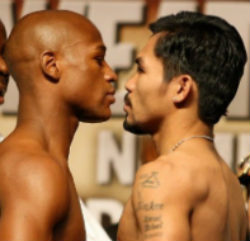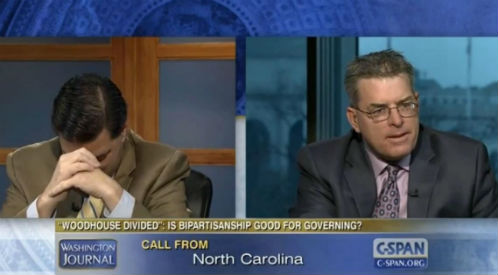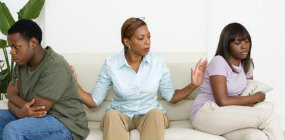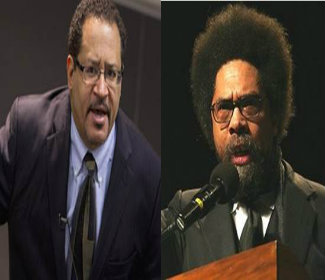This week brought us another round in the unfortunate beef between two of our most important public intellectuals, Dr. Michael Eric Dyson & Dr. Cornel West.
Dyson is throwing the punches this round with this Ether-like response in The New Republic to the recent criticism he and others have been receiving from West. For those who only like to read short texts, emails, and blog posts…you’re probably better off watching Dr. Dyson explain his article.
Either way, as someone who has been a longtime fan, and virtual student of both men through their books and interviews; watching them throw rhetorical, career-destroying haymakers at each other is as absurd as asking Floyd Mayweather and Manny Pacquiao to lead a panel discussion on the “literary evolution of philosophical thinking about the social constructs of race & class in a post-Obama America.”

On the upside, this “scholar scuffle” between the Dyson and West got me thinking about what the rules should be when arguing with friends and family. For most of us, the worst arguments we have are with the people who are close to us: Our siblings. Our significant others. Our best friends. Our parents. Our children. Our business partners. Our fellow do-gooders.
Too often, we fight our loved ones using the same tactics as we employ when taking on people who are clearly enemies. This is an emotionally expensive way to live…and the hostile words and deeds exchanged often leave our own sense of peace and well-being lying wounded on the battlefield right next to relationship we just killed.
We can do better.
Ironically enough, it was this recent panel discussion between Princeton professor Robert P. George and Dr. West that provides us with a helpful set of guidelines for engaging in tough conversations with the important people in our lives. Professor George spoke about how he and Dr. West managed to maintain a friendship while both engaging serious questions and standing up for their very different life perspectives.
I think we can all learn something from Professor George’s thoughts:

“I think it’s important to remember that the goal is the goal of the truth-seeking, and the bond that should bind together interlocutors, whether they agree or disagree is the bond of truth-seeking, understanding-seeking, wisdom-seeking.”

“If you’re going to work together in conversation – even debate – to get at the truth, the people involved in the conversation have to recognize that they are fallible, frail, fallen human begins. They have to recognize that they could be wrong. Each one has to recognize, that even about my most cherished beliefs, I could be wrong… then one will begin to develop a virtue that is indispensable for truth-seeking. And that virtue is intellectual humility. If you don’t have intellectual humility, you’re going to assume you have everything to teach, and nothing to learn.”

“The attitude that all of us have to adopt If we’re going to get anywhere in the life of the mind and if we’re going to get anywhere in our lives as citizens and fellow citizens… is the attitude of self-criticism. Your best critic should be you. My best critic should be me…It is that spirit of self-criticism that is the prophylactic against falling in love with your own opinions and putting opinion ahead of truth…The self-critical attitude is what protects us…and keeps our eye on the prize. The prize of truth, the prize of understanding, the prize of wisdom.”
Yep…what he said.
– Day G.
Host, Class of Hope & Change
